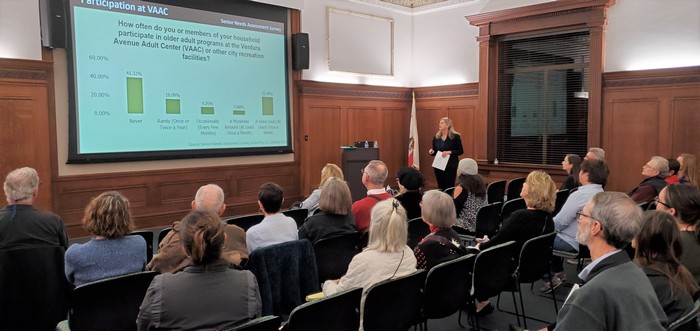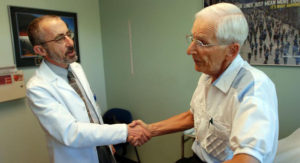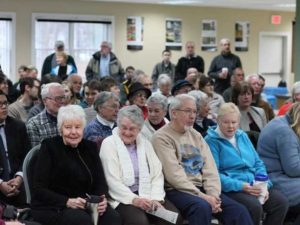
The Ventura County Area Agency on Aging’s award-winning Fall Prevention Program is offering several classes that focus on increased mobility and balance. New classes are currently scheduled to begin in January in Ventura, Ojai, and Simi Valley. All classes are free and open to the public.
Classes currently being offered include Tai Chi: Moving for Better Balance, Walk with Ease, and A Matter of Balance. Each class emphasizes practical strategies to manage and prevent falls. Participants will learn methods to enhance and increase activity levels and mobility, making the changes necessary to reduce fall risks.
Individuals concerned about falls or those who have recently experienced a fall, as well as those who are interested in improving balance, flexibility, and strength, are encouraged to participate.
Nationally recognized research shows that one in four adults over the age of 65, and half of the population over the age of 75, fall each year. Of those individuals, half will die within a year from complications and injuries sustained from the fall.
Current class locations include the Ventura County Area Agency on Aging, Ventura Adult & Continuing Education, E.P. Foster Library, HELP of Ojai, and the Simi Valley Senior Center. To learn more about the Fall Prevention Program or classes offered, or to register for a class, please contact the VCAAA at (805) 477-7300 and select option 6. More information can also be found by visiting www.vcaaa.org.
The Ventura County Area Agency on Aging, an agency of the County of Ventura, is the principal agency in Ventura County charged with the responsibility to promote the development and implementation of a comprehensive coordinated system of care that enables older individuals, caregivers, and individuals with disabilities, to live in a community-based setting and to advocate for the needs of those 60 years of age and older in the county, providing leadership and promoting citizen involvement in the planning process as well as in the delivery of services.




